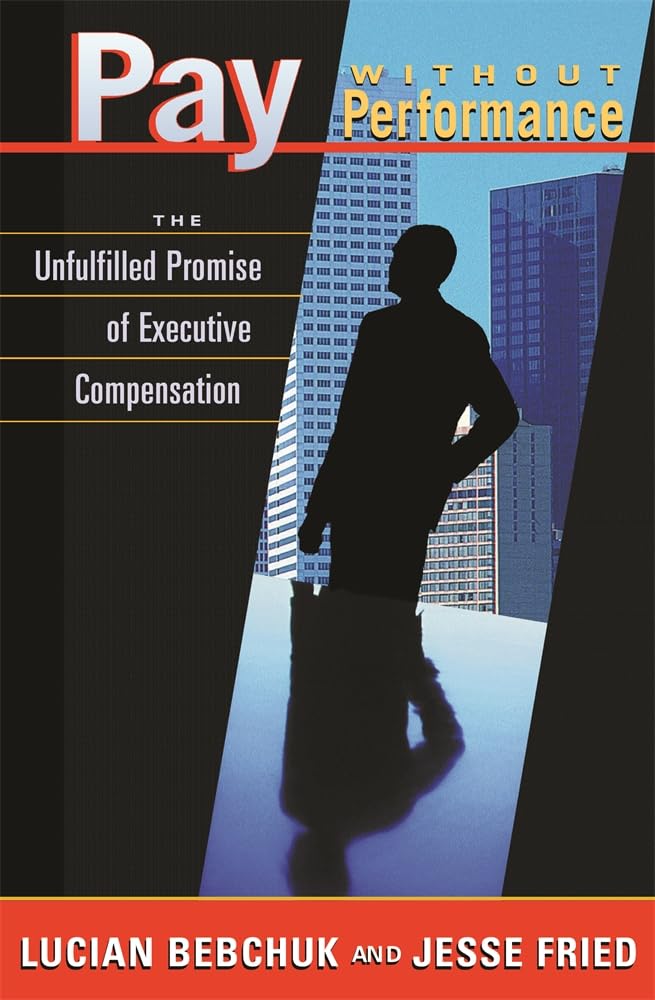Found in 2 comments on Hacker News
michaelt · 2018-01-03
· Original
thread
If you're curious then you'd enjoy reading "Pay without Performance: The Unfulfilled Promise of Executive Compensation" https://www.amazon.com/Pay-Without-Performance-Unfulfilled-C...


It suggests several reasons, including:
* Many of the conventional mechanisms put in place to prevent this do not work. For example, the observed behaviour of boards does not resemble arms-length negotiation with executives over pay. "Independent" remuneration committees and external consultants likewise do not effectively represent shareholders' interests.
* Shareholders' voting power is very diffuse. If I own one billionth of Google via an index fund in my retirement savings, I ain't exactly got much leverage over them.
* Minority shareholder lawsuits and hostile takeovers are relatively powerless in the current age.
* Outrage costs - i.e. damage to the executives' reputations and future employment prospects - can often be mitigated by camouflaging big payments [2].
* The few large institutional shareholders don't seem inclined to do much about corporate governance. Some such as CalPERS have done things effectively in the past.
[1] https://www.amazon.com/Pay-Without-Performance-Unfulfilled-C... [2] One example the book gives is a CEO whose pension terms were modified so that it the rate was based on his highest-paid year, with pay defined to include income he made from exercising stock options. A minor change that gave the executive an extra $20 million.